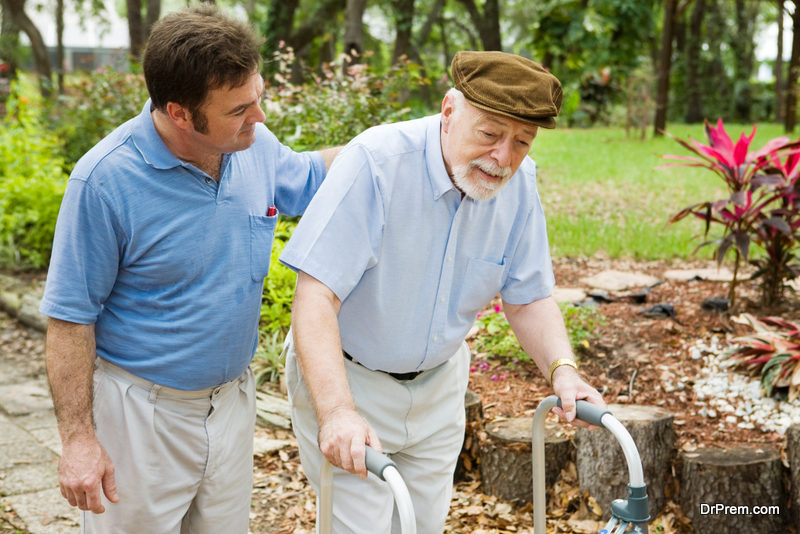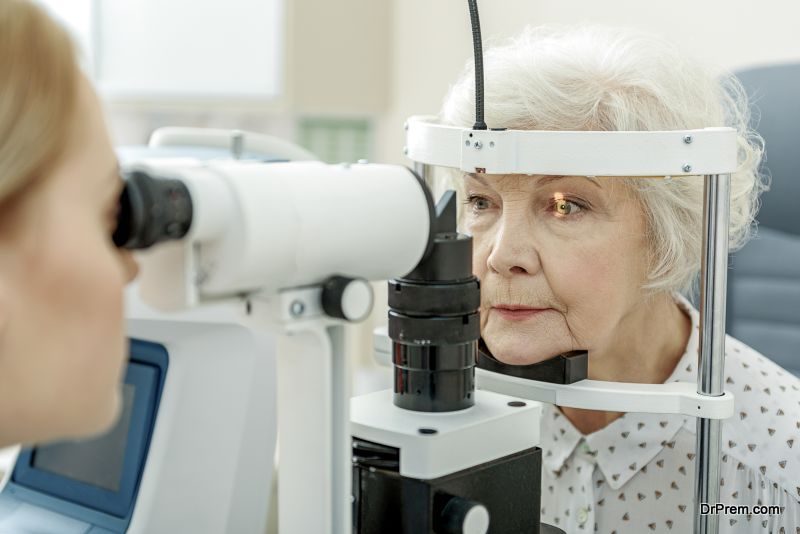An estimated 79% of adults over the age of 70 suffer from at least one chronic medical issue, and another one-third have three or more chronic issues to deal with, notes Gary Gilles, a Licensed Clinical Professional Counselor (LCPC) and adjunct professor at the University of Chicago. Moreover, he continues, most of these people visit a doctor or specialist to treat their conditions around 10 times a year, and they are often prescribed a number of medications to relieve the symptoms.
If your parents have reached this stage of life where health concerns are more frequent and modifications have to be made in their daily routines, then it could be time to broach the subject of helping them with decisions about their healthcare. You want to ensure they are independent as long as possible, but there will come a point when you need to become the supporter and advocate for your parents, like they once were for you. The following actionable steps can help all of you navigate the transition in a way that affords your parents access to the level of care they need while their dignity remains intact.
Evaluate their Specific Lifestyle Needs
 Before you assume which areas your parents need an intensive degree of help in, request their input and decide together how you can be most useful to them. DailyCaring adds that as they age, senior adults will tend to require assistance in one or more of these capacities: medical services, home safety, transportation, cognitive acuity, meal preparation, mobility, social and family interaction, or personal hygiene. Discuss with your parents what the most realistic and beneficial course of action would be to make their lives easier. Then, include them in a plan to carry this out.
Before you assume which areas your parents need an intensive degree of help in, request their input and decide together how you can be most useful to them. DailyCaring adds that as they age, senior adults will tend to require assistance in one or more of these capacities: medical services, home safety, transportation, cognitive acuity, meal preparation, mobility, social and family interaction, or personal hygiene. Discuss with your parents what the most realistic and beneficial course of action would be to make their lives easier. Then, include them in a plan to carry this out.
Make their Environment Functional
If your parent chooses to—and is able to—continue living in their own home, then make sure it’s a safe place for them to reside. One of the most common risks of injury for senior adults is falling, and 80% of these incidents occur in the bathroom of their homes, warns News USA. In addition, 30–50% of falls happen as a result of slick or uneven surfaces, poor lighting or visibility and other environmental factors, The International Journal of General Medicine points out. So reconfigure your parents’ home with these suggestions in mind to optimize accessibility, safety and mobility.
- Remove clutter from the hallways and floors
- Mount hand railings on the walls of the bathroom
- Make sure light fixtures are high-performance
- Keep all items they use often within easy reach
- Ensure that any rugs and doormats are skid-proof
- Attach electric cords to the wall baseboards
- Install smoke and carbon monoxide detectors
- Place a first-aid kit in an accessible location
- Set the water heater to a manageable temperature
- Post emergency phone numbers on the refrigerator
Communicate the Healthcare Options
 Another conversation to address with your parents is what forms of treatment are available to them. Depending on their health and independence level, they might require just a weekly check-in and rides to a doctor’s appointment or other periodic errands. But if your parents are limited in self-sufficiency or have chronic illnesses, you will need to help them navigate the different avenues of care. From geriatric medical services to community resources to housing options, a useful reference point for all of you is the U.S. Department of Health and Human Services Eldercare Locator.
Another conversation to address with your parents is what forms of treatment are available to them. Depending on their health and independence level, they might require just a weekly check-in and rides to a doctor’s appointment or other periodic errands. But if your parents are limited in self-sufficiency or have chronic illnesses, you will need to help them navigate the different avenues of care. From geriatric medical services to community resources to housing options, a useful reference point for all of you is the U.S. Department of Health and Human Services Eldercare Locator.
Assist with Choosing a Medicare Plan
Medicare is one of the most comprehensive and affordable types of insurance for senior adults who are 65 or older. But there are so many different Medicare plans to choose from that it can be overwhelming to make a selection. The kind of Medicare that’s ideal for your parents is contingent on several factors:
- Do they need access to a specialist?
- Do they take prescription drugs?
- Do they travel abroad often?
- Do they require vision, hearing and dental insurance?
- Do they want lower premiums?
In a number of cases, a Medicare Supplement Plan—or Medigap—is the optimal choice for elderly people since the benefits are more extensive than standard Medicare. Below is what HealthMarkets recommend as you assess the policies and coverage.
For Reduced Out-of-Pocket:

- Supplement Plans A and B: This covers the “basic co-insurance and co-payment costs for hospitalization, medical expenses and hospice care.”Part B also offers “coverage for Part A deductibles.” The monthly premiums are in a moderate range, so the out-of-pocket costs can be lower.
- Supplement Plan C: This “covers the basic Medicare benefits plus skilled nursing care, certain Medicare Part A and Part B deductibles, and emergency care abroad.” As with the Supplement Plans A and B, the monthly premiums for Part C are also in a moderate range.
For Reduced Premiums:
- Supplement Plan F: This covers “the basic Medicare benefits plus coverage for Part A and B deductibles, skilled nursing care, emergency care abroad and 100% of Part B excess charges” above what Medicare insures. You can also choose a high deductible to ensure lower monthly premiums.
- Supplement Plan G: This covers “basic Medicare benefits plus coverage for additional costs like Part A deductibles, skilled nursing care, Part B excess charges and emergency care abroad.” As with the Supplement Plan F, a high deductible option is available for Part G too.
Helping your parents with their health as they age can be a daunting task, but hopefully, with these tips, you will feel more informed and educated about your options.
Article Submitted By Community Writer




